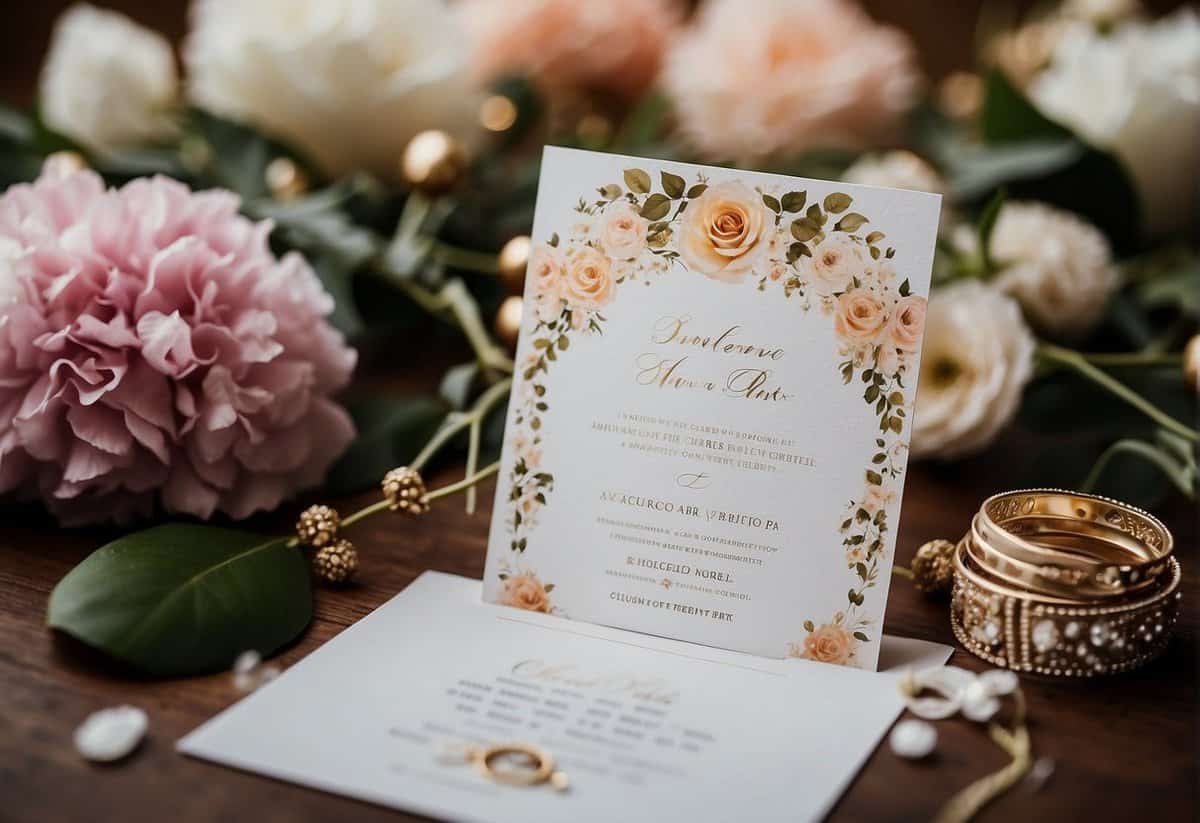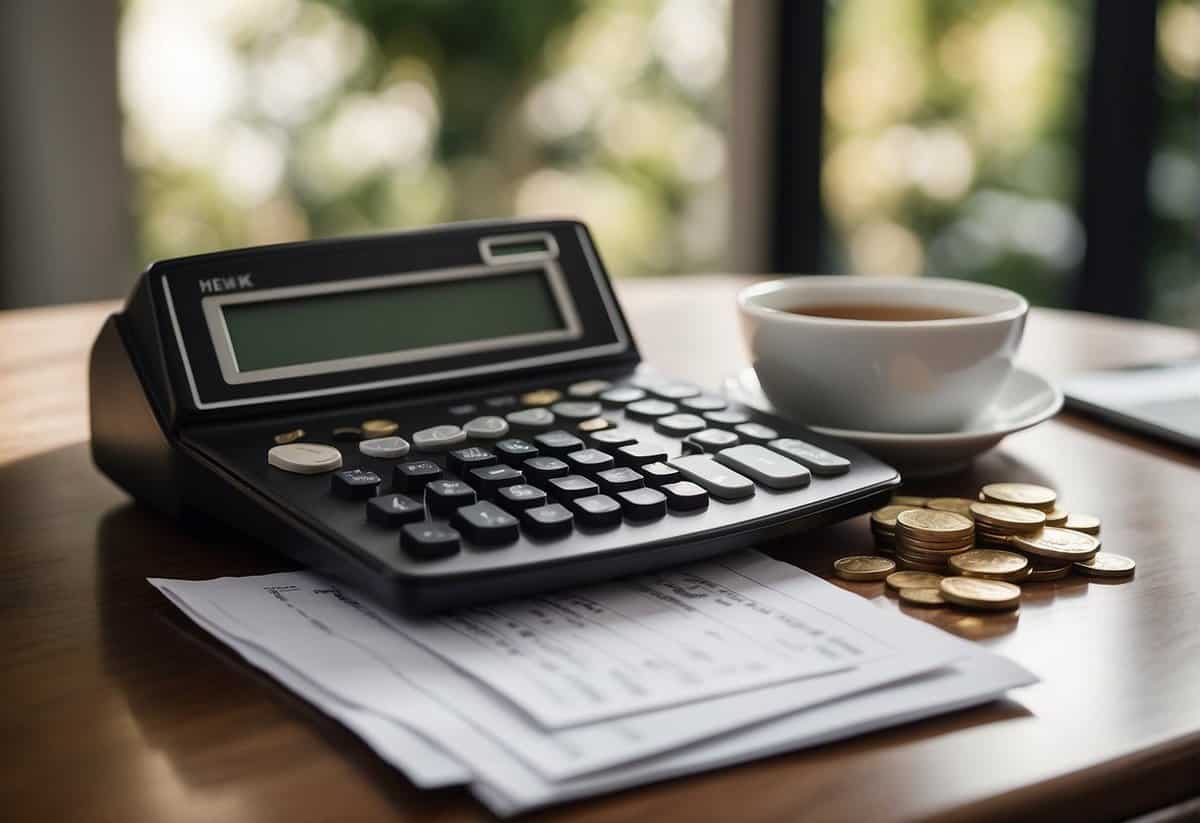What is the Average Cost of Attending a Wedding? Unveiling the Expenses
Attending a wedding can be a joyous occasion, but it often comes with a price tag that guests need to consider. The average cost of attending a wedding hinges on various factors, including travel expenses, attire, wedding gifts, and potential accommodation costs. It’s not just about the day itself; events such as engagement parties, bachelor or bachelorette parties, and bridal showers may also require financial outlay from guests.

Understanding the financial expectations when you’re invited to a wedding can help in planning and saving for these occasions. Expenses can vary greatly depending on the location of the wedding, the level of formality, and your relationship to the couple. Costs can increase if you are part of the wedding party, which often entails additional responsibilities and expenses. However, careful planning and budgeting can help ease the financial stress, allowing you to focus on celebrating the happy couple without breaking the bank.
Key Takeaways
- Attending a wedding includes several costs, like travel and attire.
- Costs can fluctuate based on the wedding’s location and formality.
- Planning and budgeting can mitigate financial strain from wedding-related expenses.
Understanding the Costs of a Wedding

Understanding the specific costs of attending a wedding is vital to effective budgeting. Keep in mind, the national average for wedding expenses can vary substantially depending on numerous factors such as venue, location, and the size of the guest list.
Budgeting Basics
To navigate the costs of attending a wedding, start by setting a budget. A good rule of thumb is to use the national average as a benchmark. Remember, your total costs may include travel, lodging, attire, and a gift. It’s essential to identify a spending limit for each category within your budget to maintain financial control.
Venue and Location Expenses
The venue and location can significantly affect expenses. The cost varies by state, with places like Rhode Island being more expensive on average than others like Alaska. When selecting a wedding destination, consider not only the wedding venue cost but also the cost of accommodation and transportation.
Seasonal and Guest List Considerations
Prices for venues and vendors can fluctuate based on the season. Peak wedding seasons typically see higher costs. Additionally, the number of guests affects the budget; more guests can mean larger venues and more catering, potentially driving up your expenses.
Vendors and Services
The vendor team is crucial to a wedding. This includes a DJ or live band, photographer, videographer, catering, officiant, and flowers and decor. Pricing for these services will vary; for example, a seasoned wedding DJ could command a higher fee than a novice. Always account for these costs in your wedding budget.
Wedding Attire and Personal Touches
Finally, don’t underestimate the cost of your wedding attire and personal touches like hair and makeup. While you might splurge on a special outfit or custom engagement ring, these choices can drive up your costs, and thus, should be carefully considered in your wedding planning to ensure they align with your budget.
Detailed Wedding Expenses

As you plan for the celebration, knowing the details of wedding expenses can help you budget effectively. From stylish invitations to the anticipated wedding cake, each aspect plays a role in the total cost.
Invitations and Stationery
You’ll begin with wedding invitations and save-the-dates, which set the tone for your event. On average, these can range from $100 to $800, depending on custom designs and quality of paper used.
Registry and Gifts
When setting up your wedding registry, consider a variety of price points. Wedding gift expenses for guests average around $150, though close friends and family may spend more.
Food, Cake, and Decor
Catering composes a large portion of the budget, as you’re likely to spend approximately $70 per person. Add in a wedding cake at $500 on average, and flowers and decor which can total $2,000 or more, these elements accentuate the celebration significantly.
Additional Services and Fees
Extra costs such as transportation, photography, and entertainment need consideration; these additional services and fees help ensure a memorable day. Expect transportation to cost an average of $800, depending on distances and vehicle types.
Cost Variations by State
Wedding costs by state can vary widely. For example, venues in Rhode Island average at $49,207, making it one of the most expensive states for weddings, while Alaska offers more affordability with an average wedding cost of $14,444.
Saving and Financial Planning

When attending a wedding, it’s important to manage your finances wisely. Having a strategy for saving ensures that you can celebrate the occasion without straining your budget.
Setting Financial Goals
Begin by determining how much you’ll need to set aside for the wedding event. If you’re attending a destination wedding, factor in travel and accommodation costs. Establishing clear financial goals early on will help you save systematically and avoid last-minute financial stress.
Alternative Wedding Savings
Consider creating a dedicated savings account or a cash fund specifically for wedding-related expenses. This can include attire, gifts, and any other costs associated with the celebration. By earmarking funds for weddings, you ensure these expenses don’t disrupt your regular savings plan.
The Role of a Wedding Planner
A wedding planner can be a valuable asset, not just for the couple, but also for guests. They often have insider knowledge of cost-effective options and may help you access group discounts on travel and accommodation for destination weddings.
Wedding Calculators and Tools
Utilize online wedding calculators and tools to estimate your expenses. Websites like The Knot offer tools that can help you break down costs and maintain your wedding budget. Tracking your spending through these platforms keeps you accountable and ensures you stay within your financial means.
Post-Wedding Considerations

After the excitement of the wedding day, you might find yourself navigating a range of post-event tasks and decisions that can shape your memories and financial trajectory. Understanding and managing these will help you smoothly transition into married life.
Etiquette for Gifts and Thank-Yous
After receiving wedding gifts, it’s important to promptly send thank-you notes. Aim to do this within two to three months after the wedding, to express your appreciation. Refer back to your guest list to ensure no one is forgotten. If you’ve received a gift before the wedding, send a thank-you within two weeks of receiving it.
The Honeymoon Budget
Your honeymoon is a special vacation, marking the start of your life together. To avoid financial stress, plan your honeymoon budget in advance, possibly adjusting plans if savings were impacted by wedding expenses or unforeseen situations like COVID-19. Prioritize activities and accommodations that align with your shared interests and financial goals.
Life After the Wedding
As you start married life, consider how wedding expenses have affected your overall savings and financial goals. It’s a good time to update your budget to reflect your new marital status, possibly consolidating finances and ensuring you continue to save for other life goals. Always keep open communication about money matters to start this new chapter on solid ground.
Frequently Asked Questions

Attending a wedding involves costs that can include gifts, travel, attire, and sometimes accommodation. Here’s what you can expect financially as a guest or if you’re planning your own nuptials.
How much should I expect to spend on a gift as a wedding guest?
Your relationship with the couple typically influences how much you’ll spend on a gift. Guests spend an average of $150 on a wedding gift, with close friends spending a bit more.
Can you give me an idea of the cost per head for wedding guests?
Wedding guest costs can vary widely depending on the type of wedding and location. However, it’s not uncommon to see per guest costs for attending a wedding, including travel and accommodations, to reach several hundred dollars.
What’s the ballpark figure for hosting a medium-sized wedding?
In recent years, the average wedding cost has fluctuated. For couples marrying in 2024, expect to spend around $33,000 for a medium-sized wedding, although this number can vary significantly based on location and choices.
Is it possible to have an affordable wedding with a large guest list?
Yes, it’s possible to have an affordable wedding even with many guests. The key is to find cost-effective solutions and prioritize your spending. Some couples opt for more modest venues or DIY elements to keep costs down.
How does the average cost of a wedding change from year to year?
The average cost of a wedding tends to inch upwards annually due to inflation and evolving wedding trends. The average wedding cost has consistently hovered around the upper twenties to midthirties in thousand dollars over the last decade.
What are the typical expenses to consider when attending a wedding as a guest?
As a guest, you’ll mainly budget for attire, travel, accommodation, and a gift. Guests typically spend an average of $120 on a wedding gift, but this can vary depending on your relationship with the couple and the wedding location.
